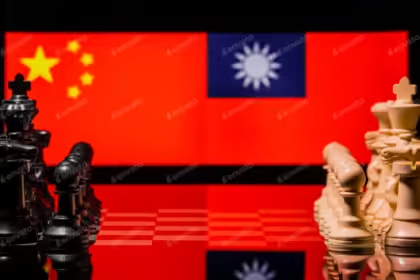Introduction
The relationship between China and Taiwan has long been one of the most contentious and complex geopolitical issues in the world. Rooted in historical conflicts, divergent political ideologies, and competing claims of sovereignty, the China-Taiwan relationship has significant implications for regional stability, global politics, and international trade.
Historical Context
The Origins of the Conflict
The roots of the China-Taiwan conflict can be traced back to the Chinese Civil War (1927-1949), which resulted in the victory of the Communist Party of China (CPC) on the mainland and the retreat of the Kuomintang (KMT) to Taiwan. Since then, China has considered Taiwan a breakaway province, while Taiwan has developed its own democratic government and identity.
The One-China Policy
The “One-China Policy” has been central to the China-Taiwan relationship. Under this policy, China insists that there is only one China, and that Taiwan is an inseparable part of it. Many countries, including the United Kingdom, acknowledge this policy, which complicates Taiwan’s quest for international recognition as a sovereign state.
Current State of Relations
Political Tensions
In recent years, political tensions between China and Taiwan have escalated. The election of Tsai Ing-wen as Taiwan’s president in 2016, who is a member of the pro-independence Democratic Progressive Party (DPP), has led to increased friction. China’s government views any move towards Taiwanese independence as a direct challenge to its sovereignty and has responded with military posturing and diplomatic pressure.
Economic Ties
Despite political tensions, economic ties between China and Taiwan remain robust. Cross-strait trade is significant, with China being Taiwan’s largest trading partner. However, these economic ties are also a source of leverage for China, which has used economic measures to exert pressure on Taiwan in response to political developments.
International Implications
U.S. Involvement
The United States plays a crucial role in China-Taiwan relations. The U.S. maintains a policy of “strategic ambiguity,” providing Taiwan with defensive arms under the Taiwan Relations Act while not officially recognizing Taiwan as an independent state. The U.S. presence in the Asia-Pacific region and its commitments to Taiwan are key factors in the regional balance of power.
Impact on Global Trade
The China-Taiwan relationship has far-reaching implications for global trade, particularly in the technology sector. Taiwan is home to some of the world’s largest semiconductor manufacturers, and any disruption in cross-strait relations could have significant consequences for global supply chains.
Future Prospects
Peaceful Resolution or Escalation?
The future of China-Taiwan relations remains uncertain. While there are ongoing efforts to maintain peace and stability, the potential for escalation cannot be ruled out. Both sides continue to prepare for various scenarios, including the possibility of military conflict.
The Role of International Diplomacy
International diplomacy will play a critical role in shaping the future of China-Taiwan relations. The actions of global powers, particularly the United States, and regional organizations like ASEAN, will be crucial in managing tensions and preventing conflict.
Conclusion
The relationship between China and Taiwan is one of the most delicate and complex in the world. As both sides navigate their differences, the global community watches closely, understanding that the outcome will have significant implications for regional and global stability.






